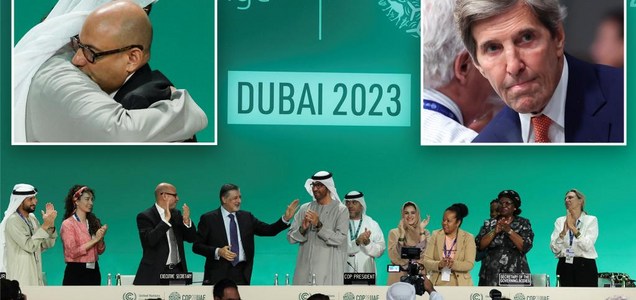On Wednesday, the COP28 Presidency released the draft of a proposed final climate deal that, for the first time, pushes nations to shift away from fossil fuels in order to mitigate the severe impacts of climate change.
The draft text aims to reflect the consensus among nearly 200 countries gathered at the conference in Dubai. Many governments have been adamant about using strong language to indicate a future end to reliance on fossil fuels. However, this stance has faced opposition from members of the oil producer group OPEC and its allies.
Norway's Minister for Climate and the Environment, Espen Barth Eide, expressed optimism, saying, "It is the first time that the world unites around such a clear text on the need to transition away from fossil fuels. It has been the elephant in the room. At last we address it head on."
The country representatives have been called for a final meeting on Wednesday morning, where they may approve the deal, bringing an end to two weeks of challenging negotiations that have extended beyond the original timeline.
Agreements made at U.N. climate summits require consensus among participating nations, after which individual countries are responsible for implementing these agreements through national policies and investments.
If adopted, the proposed deal will specifically advocate for a "transition away from fossil fuels in energy systems, in a just, orderly and equitable manner… so as to achieve net zero by 2050 in keeping with the science." Additionally, the deal calls for a tripling of global renewable energy capacity by 2030, expedited efforts to reduce reliance on coal, and the acceleration of technologies like carbon capture and storage to address industries that are difficult to decarbonize.
This would be the first time in thirty years of COP climate summits that nations have come to an agreement to move away from oil, gas, and coal, which currently account for 80% of global energy consumption. Scientists argue that fossil fuels are the primary source of greenhouse gas emissions that drive climate change.
Rachel Cleetus, policy director at the Union of Concerned Scientists, praised the proposal for sending a strong signal that world leaders recognize the necessity of transitioning away from fossil fuels. However, she emphasized that the financial and equity provisions of the deal are insufficient and need improvement to ensure low- and middle-income countries can shift to clean energy and close the energy poverty gap.


